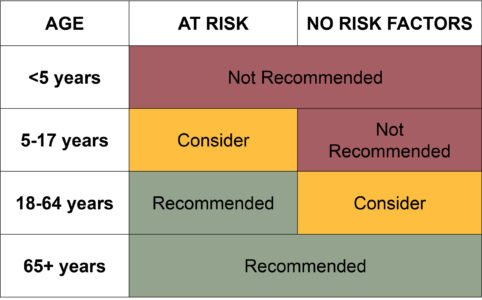ATAGI Recommends 2023 COVID-19 Vaccine Booster Dose
In February 2023, the epidemiology of SARS-CoV-2 reveals the emergence of several new subvariants of Omicron, such as BQ.1 and XBB, which appeared after the BA.4/5 wave in Australia during July and August 2022.
These subvariants are known to have increased immune-escape properties, and while they are co-circulating, none has established clear dominance. Various studies have found that the new Omicron subvariants are less susceptible to neutralization by antibodies from vaccines and natural infections. As a result, COVID-19 vaccines may offer reduced and/or shorter protection against these subvariants compared to older variants, but they still provide strong protection against severe COVID-19, especially when combined with hybrid immunity from natural infection.
Preliminary evidence suggests that the newer Omicron subvariants are not associated with more severe disease than the original Omicron subvariant (BA.1).
To address the waning of protection against severe COVID-19 prior to winter, an additional COVID-19 booster dose is expected. This will offer increased protection against severe illness and help safeguard the healthcare system during periods of high demand.
It is recommended that vaccination be postponed for six months after a confirmed SARS-CoV-2 infection as it, along with prior vaccine doses, can enhance protection against COVID-19. The Australian Technical Advisory Group on Immunisation (ATAGI) notes that testing rates have decreased, and many individuals may have had undetected SARS-CoV-2 infections in recent months. There are no safety concerns for people receiving a COVID-19 vaccine who may have had undetected SARS-CoV-2 infection in the previous six months.
The benefit of an additional booster dose in preventing severe illness from COVID-19 is most significant for those at higher risk, such as older adults and individuals with relevant medical risk factors. Throughout the pandemic, studies, including those during Omicron epidemic waves, have identified a higher risk of hospitalisation among older adults and those with immunosuppression or other chronic medical conditions, compared with younger or healthy adults.
ATAGI recommends a booster dose for all adults aged 65 and older, as the risk of severe disease increases with age. In the United Kingdom, modelling during the Omicron era revealed that administering a booster dose to 800 individuals aged 70 and above could prevent one hospitalisation from COVID-19, compared with 8000 people aged 50-59 and 92,500 people aged 40-49. However, a booster dose may still be beneficial for those aged 5-64 years based on individual circumstances such as underlying conditions that increase their risk of severe disease.
For children and adolescents aged 5-17 years with risk factors for severe illness, a booster dose may be helpful. Decisions about booster vaccination should be based on individual risk-benefit assessments with their immunisation provider. The risk of severe disease for children and adolescents aged 5-17 years without risk factors is now considered to be lower than when previous ATAGI booster advice was issued.
ATAGI continues to recommend a primary course of vaccination against COVID-19, followed by a booster dose for those eligible, even in individuals who have had past infection. Adults who have already been infected with an Omicron subvariant and have received three doses of COVID-19 vaccine are at lower risk of reinfection and hospitalisation than those who have been infected but not vaccinated.



